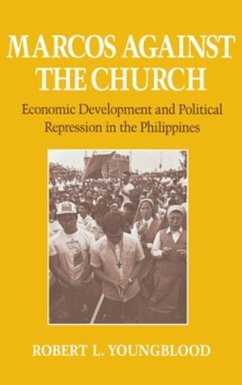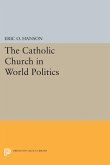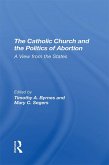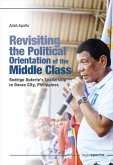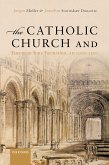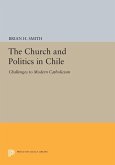The election of Ferdinand Marcos to the presidency of the Republic of the Philippines coincided with the conclusion of the work of Vatican II in 1965; and Marcos's dictatorial policies would inevitably clash with the Vatican's call for the clergy to advocate greater social justice for the poor. In this authoritative account of the role of the Catholic Church in the recent history of the Philippines, Robert L. Youngblood traces the political engagement of the Church over the twenty years between Marcos's election and his ouster from power in 1986.
Drawing upon extensive research, Youngblood explains how, although church and state professed to share the goal of improving the welfare of the poor, Marcos's economic development policies and oppressive rule created church opposition which helped accelerate the collapse of his regime. Youngblood considers the evolution of church programs from social action projects, such as the organization of cooperatives and credit unions, to the development of social justice programs that emphasized the creation of more democratic and caring communities. He examines the dynamics by which the leaders of the Philippine Roman Catholic and Protestant churches moved from a brief period of goodwill toward the Marcos dictatorship to considerable opposition by the late 1970s, as church-sponsored work among the poor was increasingly viewed by the regime as subversive. Youngblood shows that after the assassination of Benigno Aquino, Jr., in 1983, the deterioration of the standard of living of average Filipinos, along with Marcos's repressive policies toward the churches and other abuses in the name of national security, were factors which impelled powerful church figures to actively oppose the dictatorship.
Tracing the internal deliberations of the Philippine churches as they came to take the lead in opposing human rights abuses, Marcos against the Church deepens our understanding of problematic relations between church and state. Historians and social scientists interested in the Philippines and modern Southeast Asia, historians of religion, political scientists working in comparative politics and political development, and others concerned with issues of human rights will want to read it.
Drawing upon extensive research, Youngblood explains how, although church and state professed to share the goal of improving the welfare of the poor, Marcos's economic development policies and oppressive rule created church opposition which helped accelerate the collapse of his regime. Youngblood considers the evolution of church programs from social action projects, such as the organization of cooperatives and credit unions, to the development of social justice programs that emphasized the creation of more democratic and caring communities. He examines the dynamics by which the leaders of the Philippine Roman Catholic and Protestant churches moved from a brief period of goodwill toward the Marcos dictatorship to considerable opposition by the late 1970s, as church-sponsored work among the poor was increasingly viewed by the regime as subversive. Youngblood shows that after the assassination of Benigno Aquino, Jr., in 1983, the deterioration of the standard of living of average Filipinos, along with Marcos's repressive policies toward the churches and other abuses in the name of national security, were factors which impelled powerful church figures to actively oppose the dictatorship.
Tracing the internal deliberations of the Philippine churches as they came to take the lead in opposing human rights abuses, Marcos against the Church deepens our understanding of problematic relations between church and state. Historians and social scientists interested in the Philippines and modern Southeast Asia, historians of religion, political scientists working in comparative politics and political development, and others concerned with issues of human rights will want to read it.
Dieser Download kann aus rechtlichen Gründen nur mit Rechnungsadresse in A, D ausgeliefert werden.

